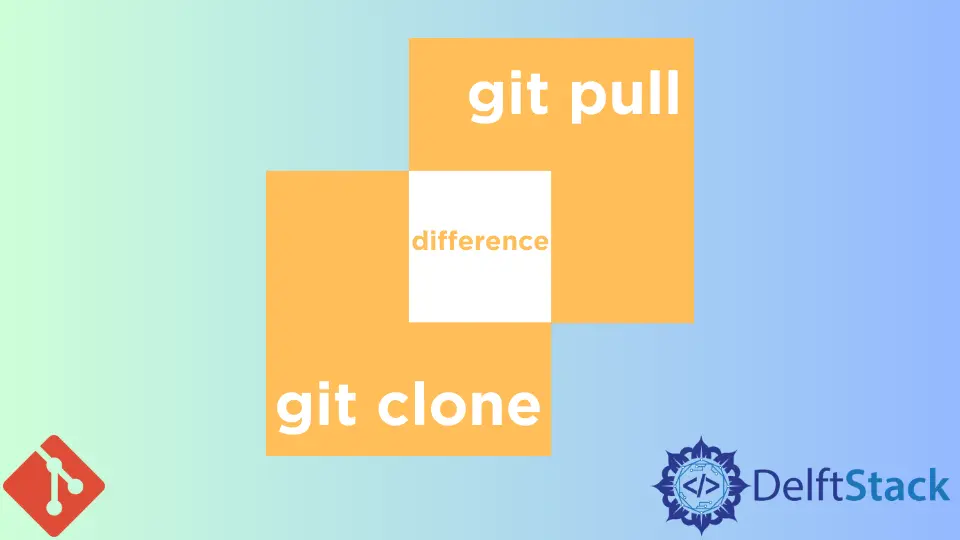The Difference Between Git Pull and Git Clone

In the world of version control, Git has become an indispensable tool for developers. Among its many commands, git pull and git clone often cause confusion, especially for those new to Git. Understanding the difference between these two commands is crucial for effective collaboration and code management. While both commands are used to interact with repositories, they serve distinct purposes.
In this article, we will explore the differences between git pull and git clone, breaking down how each command works and when to use them. Whether you are a beginner or an experienced developer, knowing how to utilize these commands can enhance your workflow and improve your coding efficiency.
What is Git Clone?
The git clone command is your gateway to a repository. When you clone a repository, you create a local copy of it on your machine. This is particularly useful when you want to start working on a project that is hosted remotely, such as on GitHub or GitLab. Cloning not only copies the files, but also the entire version history, allowing you to track changes over time.
To clone a repository, you simply need the URL of the repository. Here’s how you can do it:
git clone https://github.com/username/repository.git
Output:
Cloning into 'repository'...
remote: Enumerating objects: 10, done.
remote: Counting objects: 100% (10/10), done.
remote: Compressing objects: 100% (8/8), done.
Receiving objects: 100% (10/10), done.
Resolving deltas: 100% (2/2), done.
When you run this command, Git starts by creating a new directory named after the repository. Inside this directory, you’ll find all the files and folders from the remote repository, along with a .git folder that contains all the version control information. This means you can start making changes, committing them, and pushing them back to the remote repository if you have the necessary permissions.
In summary, git clone is your go-to command for creating a local copy of a remote repository. It’s the first step in collaborating on a project, allowing you to work offline and track changes effectively.
What is Git Pull?
On the other hand, git pull is used to update your local repository with changes from a remote repository. If you’ve already cloned a repository and want to ensure that your local copy is in sync with the latest changes made by others, git pull is the command you need. It’s a combination of two actions: fetching the latest changes and merging them into your current branch.
To perform a pull, you would typically use the following command:
git pull origin main
Output:
Updating a1b2c3d..e4f5g6h
Fast-forward
file1.txt | 2 +-
file2.txt | 5 +++--
2 files changed, 4 insertions(+), 3 deletions(-)
In this command, origin refers to the default name for your remote repository, and main is the branch you want to pull changes from. When you execute this command, Git contacts the remote repository, fetches any new commits, and then merges them into your current branch. This ensures that you have the most up-to-date version of the project.
The git pull command is essential for collaboration. It allows you to stay updated with changes made by your team members, ensuring that you are always working with the latest codebase. It’s a best practice to pull changes regularly, especially before you start making your own modifications.
In summary, while git clone is about creating a local copy of a repository, git pull is focused on keeping that local copy updated with the latest changes from the remote repository.
Key Differences Between Git Pull and Git Clone
Understanding the key differences between git pull and git clone is vital for efficient version control. Here’s a quick comparison:
- Purpose:
git cloneis used to create a local copy of a remote repository. In contrast,git pullis used to update an existing local repository with changes from the remote repository. - Usage: You use
git clonewhen you first start working on a project. You usegit pullwhen you want to sync your local repository with the latest changes. - Data Transfer:
git clonetransfers the entire repository, including all branches and history.git pullonly fetches new commits and merges them into your current branch. - Frequency: You typically clone a repository once, while you may pull changes frequently as you continue working on your project.
By understanding these differences, you can effectively manage your workflow and collaborate more efficiently with your team.
Conclusion
In conclusion, both git pull and git clone are essential commands in the Git version control system, each serving its specific purpose. git clone is your entry point into a project, allowing you to create a local copy of a repository, while git pull keeps that copy updated with the latest changes from the remote repository. Knowing when and how to use these commands can significantly enhance your development experience and improve collaboration with your team. As you continue to work with Git, mastering these commands will empower you to manage your codebase more effectively.
FAQ
-
what is the main purpose of git clone?
git clone is used to create a local copy of a remote repository, including its entire version history. -
when should I use git pull?
you should use git pull when you want to update your local repository with the latest changes from the remote repository. -
can I use git pull without cloning a repository first?
no, you must clone a repository first to use git pull, as it requires an existing local copy. -
does git pull overwrite my local changes?
git pull attempts to merge changes. If there are conflicts, you will need to resolve them manually. -
how often should I use git pull?
it’s a good practice to use git pull regularly, especially before starting new work, to ensure you have the latest updates.
John is a Git and PowerShell geek. He uses his expertise in the version control system to help businesses manage their source code. According to him, Shell scripting is the number one choice for automating the management of systems.
LinkedIn